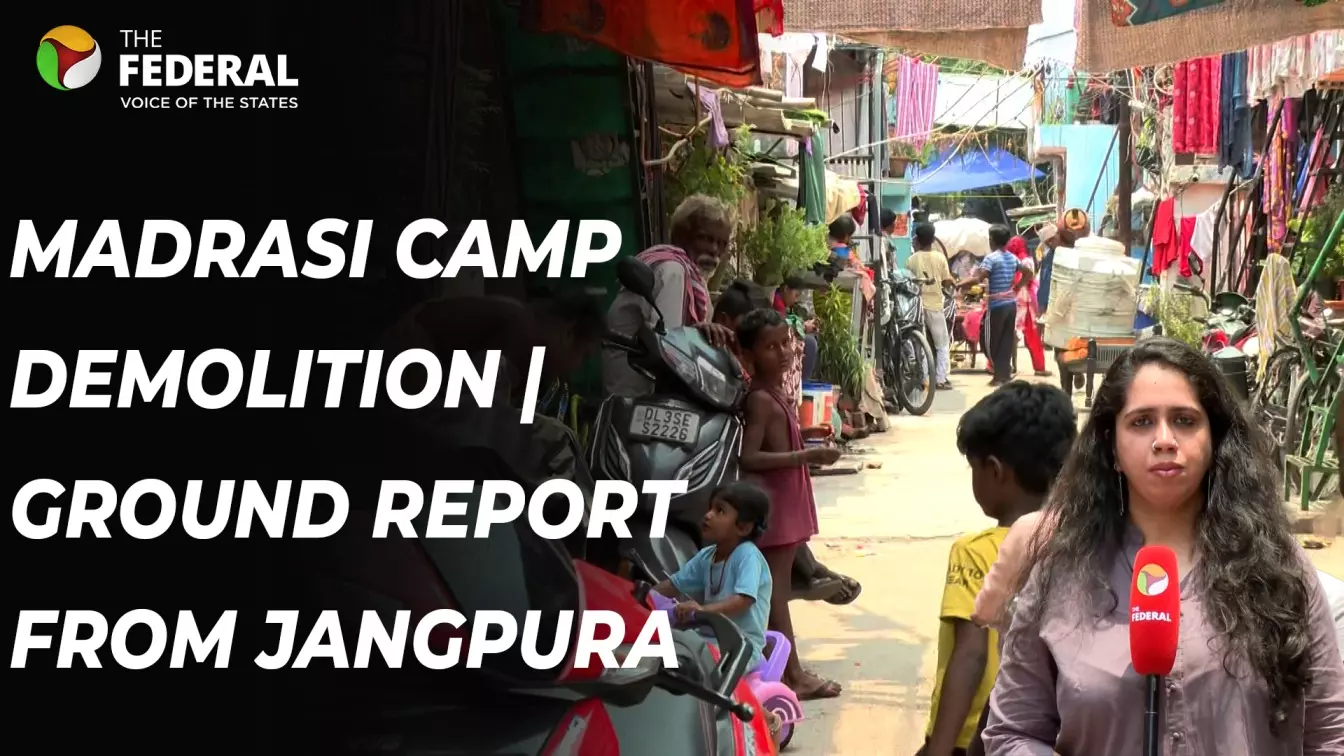
Madrasi Camp Demolition
Delhi's Madrasi camp demolition: Will families get homes? A ground report
As Delhi Municipal Corporation clears the slums to clean Barapullah drain, 26 families still await homes post June 1 demolition

The Delhi High Court has ruled that slums in Madrasi Camp near the Barapullah drain must be cleared to prevent waterlogging during monsoons. While 189 families have received new homes, many others remain in limbo, unsure of their future. With demolition scheduled for June 1, anxiety grips the camp.
Residents say the government has not kept its promises, particularly the assurance that all eligible slum dwellers would be relocated before eviction. Several claim they were unfairly left out of the rehabilitation list, despite having lived in the area for decades and possessing voter ID, ration cards, and Aadhaar.
“Only some households have got rehabilitation. What will happen to others? I was born and brought up here. Modi promised ‘Jahan Jhuggi Wahan Makaan’ but he betrayed us,” said a long-time resident and construction worker.
Relocation concerns
Many residents accuse officials of discrimination and mismanagement. While some have been allotted homes, others were denied due to missing voter records, an issue especially troubling for elderly and illiterate residents who may not understand why their names were removed.
“I’ve lived here for 70 years. I have an Aadhar card and ration card, but they say I am not eligible because I don’t vote. How would I know if my name was cut from the list? I voted when I could,” said a woman resident.
The Delhi Urban Shelter Improvement Board (DUSIB) recently issued provisional allotment letters to 26 additional families, but many fear this move is too little, too late.
Livelihoods at stake
For those who have been moved to Narela, located nearly 45 km from their current homes, the new location poses serious challenges. Residents worry about commuting long distances to work in Bhogal, Lodhi Colony, and other nearby neighborhoods where they earn modest incomes as domestic workers or daily wage laborers.
“I work in Bhogal and earn Rs 10,000–15,000 a month. If I go to Narela, how will I travel and manage everything? I am neither here nor there now. It’s a total loss,” said one woman who has already been relocated.
Children too are caught in the crossfire. Many are enrolled in the nearby Delhi Tamil Education Association School, which offers affordable and accessible education to the community. Moving to a far-off location could derail their schooling, particularly given differences in language and curriculum.
“Narela is very far. The education there is different. How will we manage? They shouldn’t demolish our homes. If they must, they should relocate us nearby,” pleaded another resident.
What happens on June 1?
As the demolition deadline of June 1 approaches, fear and uncertainty dominate conversations in Madrasi Camp. While some hope for more time, others brace for bulldozers. The lack of clarity and perceived government apathy have only worsened the residents’ anxiety.
The case highlights a larger question: Can urban development and environmental management be pursued without displacing the most vulnerable?
The content above has been generated using a fine-tuned AI model. To ensure accuracy, quality, and editorial integrity, we employ a Human-In-The-Loop (HITL) process. While AI assists in creating the initial draft, our experienced editorial team carefully reviews, edits, and refines the content before publication. At The Federal, we combine the efficiency of AI with the expertise of human editors to deliver reliable and insightful journalism.

